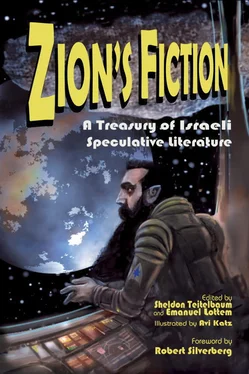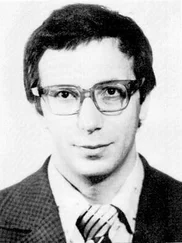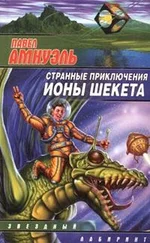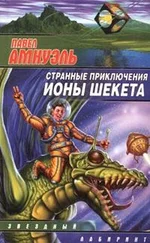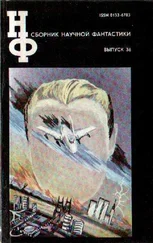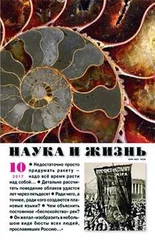The doorbell rang. Alfred shooed them into the bedroom, then went to answer the door. As the children slipped out of the assembly room, they heard him arguing loudly with a herd of news-hungry reporters clustering outside.
The ceremony took place in the main auditorium of the Organization’s headquarters. The old building, considered an architectural masterpiece of the twenty-first century, was in the shape of a globe, and its highest point matched that of the ancient Eiffel Tower. Its surface was an exact map relief of the continents and oceans of the earth but had the appearance of being assembled from a puzzle. The main entrance was through a wide door in the south of the Pacific Ocean, and the Linton children remembered the sight from the many SuperVision broadcasts of similar ceremonies that they had witnessed over the years. Today they were the heroes of the show. Their parents, beaming proudly, chose to remain in the background and allow their offspring to bask in their moment of glory. Alfred, who was constantly repelling overeager reporters by waving his cane, made room for them to immortalize their historic entrance to the building on digifilm.
They were received with thunderous applause. They briskly followed the green-clad usher to their places of honor in the first row.
“I wonder if these people already know that we’ve broken the world record,” commented Dave.
“I don’t think so,” replied Tommy. “The results are kept secret and are first announced on this very occasion. I believe they don’t even know what place we took.”
“Shh,” hissed Alfred impatiently. “The ceremony is beginning.”
The majestic ceremony was relatively short. The world head scientist gave a speech, and the chairman of the Competition Board delivered his congratulatory address to the winners.
The master of ceremonies called upon the Clarke team from Sunnyvale to ascend and receive third prize. Their excellent time was twenty-one hours, thirty minutes, and fifty seconds.
“…With only one assembly error,” announced the MC as the audience cheered and applauded.
Next was the team from the Einstein Institute in New York, who took second prize with the amazing time of twenty-one hours, eighteen minutes, and seven seconds.
“Without a single assembly error,” roared the MC. “Only twenty-three minutes from the previous world record.” The applause was long and loud, and in it were mixed whispers of anticipation and excitement. The allusion was quite clear—the audience was about to witness history in the making. The breaking of a world record!
“And first prize, by a very large margin, goes to a team that has continually surprised us this year,” announced the MC, his excitement mounting. “I am honored to invite to the stage an independent team from Cape Cass: Lily, David, and Tommy Linton. And their manager, Alfred Collins.”
The three children skipped onto the stage amidst deafening applause. Alfred limped after them more slowly.
“For the past nine years the world record was held by the Peterson team, and it was considered to be the ultimate in human puzzle-solving endeavor,” continued the MC, his enthusiasm gaining. “And here we have a group of children, not even of the elite priority study program, who have broken this record. Ladies and gentlemen, it is with no little pride and elation that I tonight announce new limits to the human capacity to solve puzzles. In first place: the Linton team, with a new, fantastic world record of fifteen hours and forty-two minutes exactly!”
It was as if an earthquake had struck. The cheers, the clapping, the whistles, the yells—all made for a roar so deafening that Tommy, who had opened his mouth to correct the MC, closed it in consternation. He glanced at Dave and Lily and saw the confusion in their faces as well.
“And now, a few words from the head of the team—Tommy Linton!”
Tommy found the microphone shoved in front of his face. He swallowed hard and said:
“We are very happy to have won first place in the competition. It has been our dream for a long time. We’d like to thank our parents who gave us all the backing we needed. We’d also like to thank all the citizens of Cape Cass for their support and encouragement. And very special thanks goes to Alfred Collins, without whom we would not be standing here tonight.”
The applause shook the auditorium, and Tommy waited for it to subside before continuing.
“However, there has been an error in the MC’s announcement. Yes, we did break the world record, but our time was nineteen hours, thirty minutes, and ten seconds.” He paused briefly and then went on. “And we need to add two minutes to this timing, because the package arrived two minutes early.”
The huge auditorium became as still as a cemetery.
“Just what do you mean, young man?” boomed the Competition Board chairman. He waved a large sheet of paper and added: “I have here the photo-image of the puzzle you constructed, with its time stamp. The time is exactly fifteen hours and forty minutes!”
Tommy took the photo-image and his blood froze. The chairman was right about the timing. But the picture, instead of showing a coral reef and a shipwreck, displayed a savage volcanic scene—bubbling lava flowing down a mountainside studded with fabulous, overturned statues. Something was definitely very wrong. The paper sheet fluttered to the floor, and Tommy turned desperately to Alfred.
“Can anyone explain what is happening here?” thundered the head scientist. The audience started to mutter and exchange whispers.
“I can, Dr. Daniel Carter, if you’ll permit me,” said Alfred suddenly and picked up the microphone.
“Alfred Edelberg!” exclaimed the head scientist in astonishment.
“Not anymore,” corrected Alfred. He turned to the audience and addressed them directly, his voice carrying confidence and authority. “Today my name is Alfred Collins. In the past my surname was Edelberg. You may remember the Edelberg vaccine against aging—in fact, I’m pretty sure many of you have actually used it. It is named after me, as it was I who discovered it. Others may remember me due to the scandal that resulted when I accused the World Science Committee of limiting the freedom of research. I consequently lost my job, and I was expelled in disgrace from USA-Tech.”
His gaze scanned the audience. The whispers and murmurings intensified as several of those present recalled the episode that shook the scientific world some twenty years earlier.
“But I did not abandon hope,” continued Alfred, and he turned to face the head scientist, who sat motionless in his chair, his face as pale as a sheet. “I changed my name and continued my research, which now was, unfortunately, illegal, and I may be immediately arrested for it. I developed a series of biological grain types, easily produced by common plants, that raised the intelligence of the organism that ate them.”
He bent down to the floor, picked up the picture of the puzzle, and held it aloft for the audience to see.
“The puzzle in this picture was not assembled by Tommy, Dave, and Lily Linton. They assembled a different puzzle—a puzzle as difficult as this one, but a puzzle of my own design—and they completed it in nineteen hours, thirty minutes, and ten seconds. Two minutes must be added to this timing, because I delivered the puzzle to them two minutes too early. Thus, while they were busy with my puzzle, I intercepted the messenger with the real puzzle and took it to my house, next door to the Lintons’. There, in a simple and primitive assembly room, without the aid of a computer, the puzzle was assembled by the Zoko team in only fifteen hours and forty minutes.”
He smiled reassuringly at the three children who were staring at him, their mouths agape, their complexions ashen.
Читать дальше
